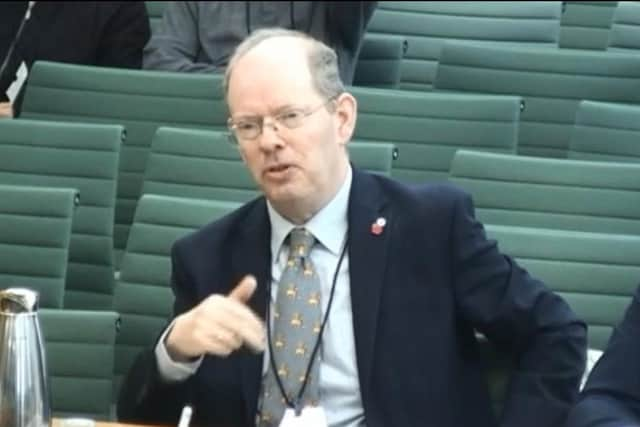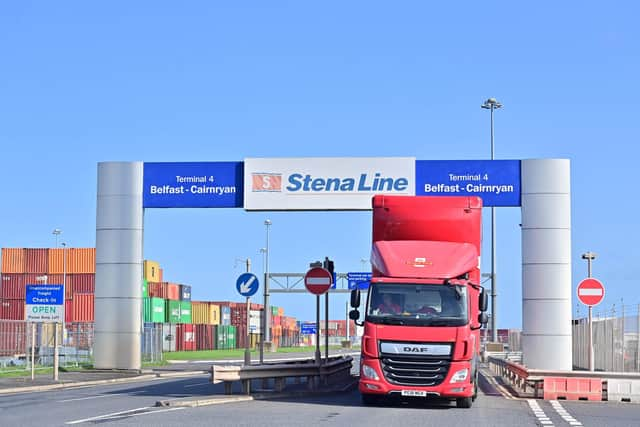Windsor Framework Northern Ireland: Larger manufacturers barred from using Green Lane
and live on Freeview channel 276
Because NI remained in the EU Single Market after Brexit, full EU customs regulations apply to all goods coming into NI from GB.
Under the Windsor Framework, however, the EU and UK agreed to create a 'green lane' to reduce EU regulation of goods coming in from GB - if they are purely for use in NI.
Advertisement
Hide AdAdvertisement
Hide AdHowever all goods at risk of leaking into the EU territory in the south must still face full EU regulation, via the 'red lane'.


All businesses which are shipping “finished” goods from GB potentially qualify to use the green lane regardless of turnover. The EU has been very clear that only goods with a “final sale/end use” in NI should be able to use the green lane.
However this means most manufacturing firms bringing in goods for further processing would be excluded from it. The UK government has, however, introduced exemptions applying to construction, food, not-for-profit, healthcare and animal feed, regardless of turnover size.
Additionally, all firms with very low turnovers, less than £2m annually, can potentially use the green lane.
Advertisement
Hide AdAdvertisement
Hide AdEconomist Dr Esmond Birnie says it is therefore reasonable to believe that manufacturers with turnovers above £2m in areas such as electronics, engineering and chemicals will be barred from using the green lane when buying materials from GB for processing.


Mark Tait, company director at Target Transport in Randalstown, says the government insists 80% of NI manufacturers buying goods in for processing will benefit from the green lane.
"But among the other 20% of businesses are some of the biggest employers in Northern Ireland," he said. "Once again we are being asked to use a sledgehammer to crack a nut."
He has argued that the green lane would primarily benefit NI retailers because manufacturers could not guarantee that finished goods would not leak across the border into the EU.
Advertisement
Hide AdAdvertisement
Hide AdDr Birnie estimates that based on the £2m size threshold exemption alone, the bulk of manufacturing output will still be forced into the red lane.
"75% of total output or turnover in the relevant sectors will be excluded from using the green lane," he said. "This is because a small number of relatively large firms produce the bulk of output. My estimate is that any NI business employing more than 16 people will probably be above the £2m exemption threshold and so the various bits of [red lane] paperwork will apply. Hence my estimate of somewhere around £2bn of goods from GB every year will not be eligible for the Green Lane.”
“And even allowing for all the various exemptions I would estimate that about one-fifth of the NI private sector will not be eligible to use the Green Lane”.
The Cabinet Office responded that not all businesses with large turnovers are excluded from the green lane.
Advertisement
Hide AdAdvertisement
Hide AdA spokesman said: ‘It is not true that businesses with a turnover of over £2m are excluded from the scheme.
"The turnover threshold for using the UK Internal Market Scheme [Green Lane] for processing inputs [manufacturing companies] is set at £2m but there are additional sectoral carve outs [exemptions] on top of this; even if firms are above the threshold, companies bringing in finished goods can qualify irrespective of their turnover."
The Cabinet Office said it was unaware of the basis for Dr Birnie’s claims but that they do not accurately reflect how the scheme is operating or its engagement with manufacturers in Northern Ireland.